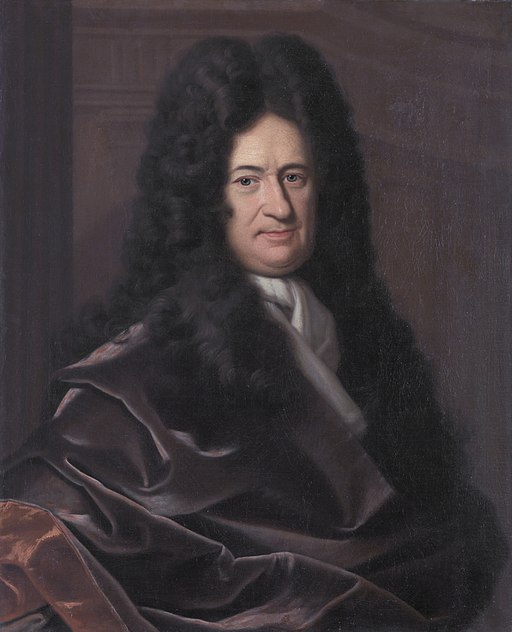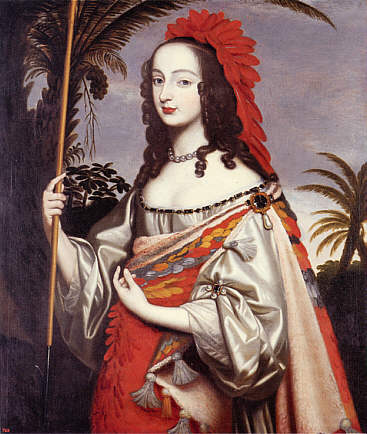 |
| Christoph Bernhard Francke [Public domain], via Wikimedia Commons |
Leibniz was born in Leipzig, Saxony just as the Thirty Years War was drawing to a close. His early studies were helped, in no small part, by access to his father's very large library, his father having been Professor of Moral Philosophy at the University of Leipzig.
From 1676 until his death in 1716, Leibniz was attached to the House of Hanover, following an invitation by Duke John Frederick of Brunswick, leading to his appointment as Privy Counselor of Justice. However, it was a position that he accepted with reluctance, having previously been unsuccessful in gaining employment in Paris or, with the Habsburg imperial court – appointments that would have offered him the kind of prospects more in line with what he relished.
"Among the few people in north Germany to accept Leibniz were the Electress Sophia of Hanover (1630–1714), her daughter Sophia Charlotte of Hanover (1668–1705), the Queen of Prussia and his avowed disciple, and Caroline of Ansbach, the consort of her grandson, the future George II. To each of these women, he was correspondent, adviser, and friend. In turn, they all approved of Leibniz more than did their spouses and the future king, George I of Great Britain." – WikipediaAuthor, J.N. Duggan, in her biography, Sophia of Hanover: Winter Princess, remarks that Leibniz's appointment as court librarian "would, in many ways, fill the gap left in her life by Karl Ludwig's (her husband) death."
Some time in 1686, Sophia and Leibniz embarked upon a project to reconcile the Christian churches. "The times, however, were particularly unsuited to such an enterprise," according to J.N. Duggan but, it provides an example of the depth and scope of the collaboration between two who can rightly be regarded as visionaries of their time.
While in Hanover, he was commissioned, by the Elector Ernest Augustus, to write a history of the House of Brunswick, going back to the time of Charlemagne. It is a project that he never finished, mainly because he insisted upon writing "a meticulously researched and erudite book based on archival sources" whereas, "his patrons would have been quite happy with a short popular book, one perhaps little more than a genealogy with commentary, to be completed in three years or less." (Wikipedia)
Nevertheless, the project "furnished its author an excellent excuse to embark on extensive travels throughout the Empire and Italy in search of ancient documents" (Sophia of Hanover: Winter Princess by J.N. Duggan). When the fruits of his labour were eventually published, in the 19th century, it filled three volumes.
Leibniz died, on 14 November 1716 at the age of 70, largely out of favour with the House of Brunswick, who were not represented at his funeral. His death also went unremarked upon by the academies of which he was a member. His grave went unmarked for more 50 years.
 |
| Google Doodle honouring Gottfried Wilhelm Leibniz on the occasion of the 372nd anniversary of his birth |
Source Material
- Sophia of Hanover: Winter Princess by J.N. Duggan (published by Peter Owen Publishers, 2010. ISBN: 978-0-7206-1342-1)
- Gottfried Wilhelm Leibniz on Wikipedia


